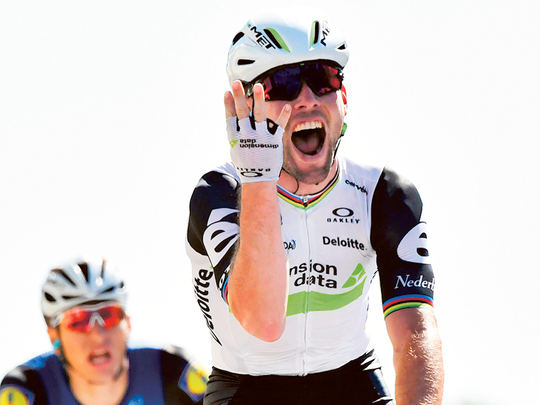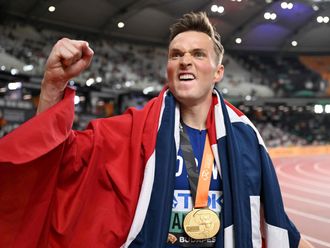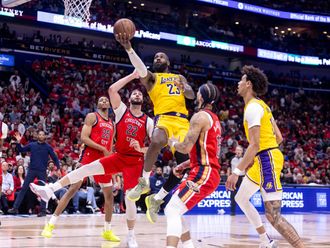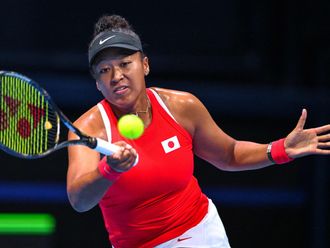
Bern: In the end, despite staying with the lead group up the nasty climb 2km from the finish, Mark Cavendish was unable to sprint for a fifth victory of this year’s Tour de France. He just did not have the legs, admitting he was “hanging in there”.
Cavendish’s South African team, Dimension Data, had held high hopes of a win either from the Manxman or, more likely – given the difficult finish, Norwegian Edvald Boasson Hagen, on Mandela Day. But after a long hot day in the sun as the peloton crossed from France into Switzerland, neither was able to match Peter Sagan (Tinkoff), the Slovakian whose extraordinary ability and refreshing attitude make him by far the most exciting rider in the world at the moment.
The Tour rested for a day on Tuesday, the riders giving their legs a break ahead of four brutal days in the Alps before the finish in Paris.
Cavendish’s brain, though, will be working overtime. With just one bunch sprint left, in Paris on Sunday, does he slog his way over the Alps to compete for a fifth victory on the Champs Elysees or does he pull out to give himself a smooth run-in to Rio, where he is targeting Olympic gold in the omnium? There are pros and cons to both options. At 31, Cavendish has never won an Olympic medal, something which rankles with him, largely because he is asked about it in almost every interview he does.
Britain places a larger stock than most on Olympic sport and Cavendish is well aware that a gold medal would secure his reputation as one of the finest sportsmen the UK has produced, even if 30 Tour stages, the 2011 world road race championship, the 2009 Milan-San Remo crown, the leaders’ and points’ jerseys at all three grand tours, and various track world titles have already secured him that reputation in cycling.
If he left now, Cavendish could return to the track with his head held high, having exceeded all expectations at this Tour, fulfilling everything Dimension Data could have asked of him to boost awareness of their Qhubeka charity. He would not risk crashes, illness or fatigue in the Alps. And he would have more time to prepare for Rio under the watchful eye of men’s endurance coach Heiko Salzwedel.
Cavendish could potentially be used in the semi-final of the team pursuit, as well as the six-discipline omnium. On the other hand there is the pull of Paris, where he made his name with four wins from 2009 and 2012. Stages do not come any bigger for a road sprinter. Cavendish knows he has his rivals beaten and the temptation to carry on while his form is good is strong; he now lies just four behind Eddy Merckx in the all-time Tour stage winners list.
He also knows his body best and is adamant that road miles are keeping him sharp. Dimension Data were keeping their cards close to their chest last night.
“We will not discuss that in the media,” sporting director Rolf Aldag said after yesterday’s stage. “It’s something we’ll discuss inside the team bus. I have been asked that question by every journalist since the Tour started.”
Sagan’s victory – his third of the race – came via a photo-finish after he threw his bike at the line fractionally ahead of Katusha’s Alexander Kristoff. After 17 second places in Tour stages, no one begrudged him the win.











